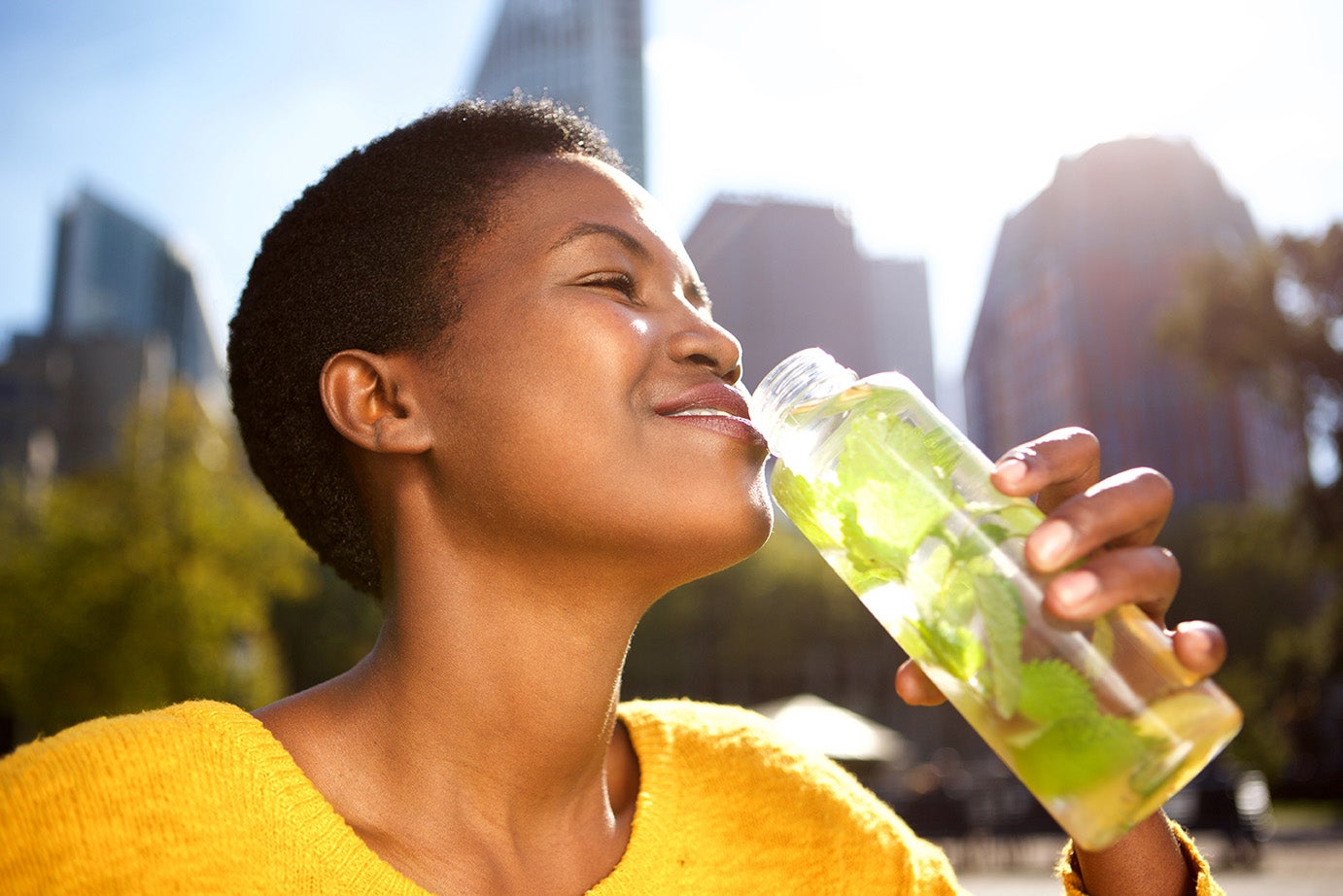Hydration Celebration
June 3, 2024Categories: Bariatric, Health & Wellness, Blog
Tags: Bariatric, Health & Wellness, Blog
 Water is the most important and vital substance to all human life. 60% of the body is made up of water, and the list of functions water is involved with includes regulating body temperature and blood pressure, digesting food, removing waste from the body, lubricating joints and eyes, as well as brain function. This is why dehydration is so serious and why your bariatric team is always reminding you to “drink, drink, drink!”
Water is the most important and vital substance to all human life. 60% of the body is made up of water, and the list of functions water is involved with includes regulating body temperature and blood pressure, digesting food, removing waste from the body, lubricating joints and eyes, as well as brain function. This is why dehydration is so serious and why your bariatric team is always reminding you to “drink, drink, drink!”
Being adequately hydrated is important for overall health and has many benefits including:
- Improved mood
- Better brain function and memory
- Increased energy
- Regular healthy bowel movements
- Kidney health
- Prevention of dry eyes, mouth, and skin
- Better waste removal through sweat, urine, and the stool
Dehydration occurs when you take in less fluids than you lose through bodily functions like sweating, breathing, and going to the bathroom. The human body is always working 24/7 to maintain optimal fluid balance by using hormones to control how much we urinate and sending signals to our brain to tell us that we’re thirsty so we can replenish what has been lost. Unfortunately, many people ignore the signs their bodies are trying to tell them and do not drink as much as they should be to maintain optimal hydration status.
After bariatric surgery, dehydration can occur easily as you can’t take large gulps or chug fluids anymore. You also can’t eat and drink at the same time. Why not? Well, your stomach is about 80% smaller than it used to be and can only hold so much volume at one time. After eating a few ounces of food, your stomach is at full capacity. If you overdo it, you can end up feeling nauseas or vomiting because there is nowhere else for the food and fluid to go. Eating and drinking at the same time can also create too much pressure in the stomach, and can lead to acid reflux as well.
It is recommended to stop drinking 30 minutes before a meal, and also wait 30 minutes after a meal to drink any fluids after bariatric surgery. This is also why dehydration can occur post-operatively, having to wait to drink and spacing it out can make it difficult to drink enough throughout the day. This can be a challenge to get used to in the beginning and may not feel natural if you are accustomed to drinking and eating together. Practice working on this beforehand, so that it will be easier to adhere to after having surgery.
Dehydration is serious and can happen to anyone. Having diarrhea or vomiting is another way we lose excess fluids and electrolytes. If you are sweating a lot during exercise or from being outside in hot temperatures, you need to replenish those fluids lost as well in order to stay hydrated.
Common signs and symptoms of dehydration to be aware of are:
- Headache
- Dizziness
- Dark yellow or brown colored urine
- Fatigue
- Irritability
- Confusion
- Thirst
- Dry mouth and lips
- White coating on the tongue
- Constipation
Dehydration can also occur when traveling or anytime you are out of your normal routine and may not be drinking as much as you usually do on a typical day. It’s a good habit to bring a reusable water bottle with you everywhere you go.
How much should you be drinking to prevent dehydration?
Fluid needs vary from person to person, but a general recommendation is to consume at least 64+ ounces of fluid every day. In the initial weeks following surgery, it can be difficult to get that much in, but is extremely important so give it your best effort and full attention. Use an app to keep track of how much you are drinking so you know where you are at, and pay attention to any signs and symptoms of dehydration. Avoid carbonated beverages and any drinks with sugar in them like sports drinks, soda, fruit juices, and energy drinks as they contain empty calories, can cause dumping syndrome, and can actually reduce the amount of fluid your body retains.
Better beverage choices include:
- Water
- Water infused with cucumber, mint, lemon, etc. (see recipes below!)
- Unsweetened decaf tea (hot or iced)
- Sugar free sports drinks or flavored water
- Sugar free juice
- Crystal light, Mio, True Lemon, or any other sugar free water enhancer
- Low sodium broth
Infused Water Ideas
Wash all produce before adding it to 1 gallon of water and refrigerate overnight in a glass pitcher to infuse, consuming within 3-4 days. For a stronger flavor mash the fruit slightly in the pitcher.
| Flavor | Ingredients | Quantity | Preparation |
|---|---|---|---|
| Citrus | Lemons, limes, oranges, mandarin, grapefruit | 2 small or 1 large piece of fruit, or a blend of all types |
Thinly slice in whole circles or quarter wedges. Leave skin on for added flavor and color
|
| Cucumber Melon and Mint | Cucumber and any type of melon (honeydew, cantaloupe, watermelon) fresh mint leaves |
½ cucumber 1-2 cups melon 10 small leaves or sprigs of mint |
Leave skin on cucumber and slice into rounds. Peel melon and slice however preferred, add torn mint leaves or leave whole for more subtle flavor
|
| Apple Cinnamon | Any type of apple and cinnamon sticks |
2 small apples or 1 large 2 cinnamon sticks |
Slice the apple into wedges or circles, unpeeled. Core can be removed or left in without seeds
|
| Strawberry Kiwi | Strawberries, kiwi |
1 kiwi 5 large strawberries |
Peel the skin off the kiwi and cut berries and kiwi into thin slices
|
| Pineapple Mango | Pineapple, mango |
1/3 of a mango 1 cup pineapple |
Peel mango and pineapple, cut into strips or chunks. Can add the pineapple core and mango pit as well to infuse flavor
|
